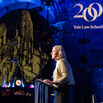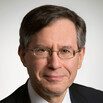Law Faculty Offer Analysis of Russia’s Invasion of Ukraine
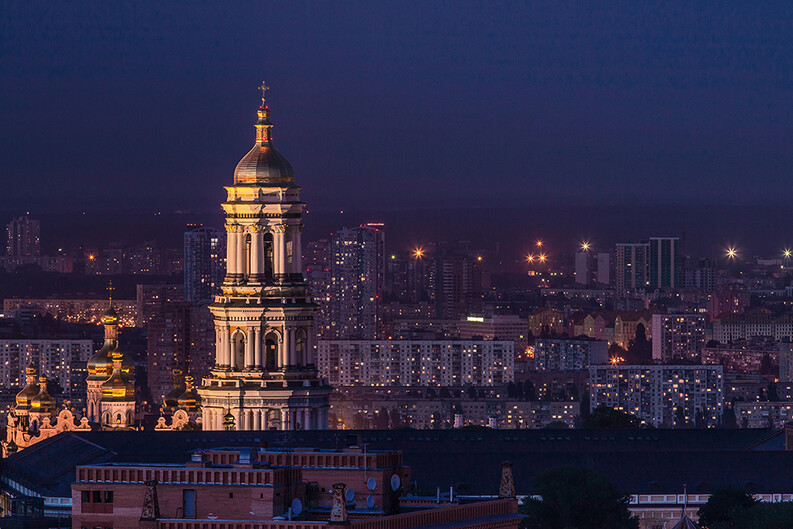
Early on the morning of Feb. 24, Russia launched a full-scale invasion of Ukraine, with explosions reported across the country in major cities, the result of attacks from land, sea, and air. This aggressive action by Russian President Vladimir Putin marks the first major land war in Europe in decades and has far-reaching implications across the globe. Putin has defended the invasion as a “necessary measure” and warned against interference from the U.S. and other allies. The Biden administration has condemned the invasion but has said that the U.S. will not send troops to Ukraine. In remarks to the country, President Biden announced severe economic sanctions on Russia and promised further steps to strengthen the NATO alliance and provide humanitarian assistance to Ukrainians.
Four Yale Law School faculty members offered initial analysis of the war in Ukraine, presenting perspectives on international law, security, foreign policy, and human rights as the war began to unfold.
Oona Hathaway and Scott Shapiro on International Order
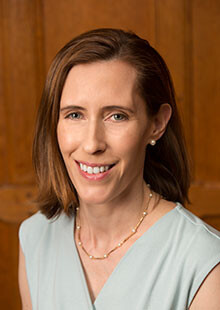
“While the invasion ordered by Russian President Vladimir Putin is in direct violation
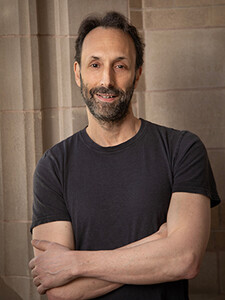
“The main function of the law, as the philosopher HLA Hart has argued, is to guide conduct. The law tells us what we may or may not do. But legal institutions don’t naively assume that we will obey its demands. It has contingency plans. The law has rules for how to respond to rule-breaking. That’s why we have police, courts, lawyers, wardens and parole officers.
“International law also has a contingency plan when Plan A fails. As we detailed in The Internationalists, for hundreds of years, Plan B was war. War was the legally permissible way that states had for righting legal wrongs done to them. The legal right of conquest was designed to compensate the victorious victim. But thanks to the Kellogg Briand Pact of 1928 and the U.N. Charter of 1945, war is no longer a legitimate way for states to enforce international law (though states subject to aggression, like Ukraine, are allowed to defend themselves under Article 51 of the Charter). International law now provides for other ways for states to respond to violations — including through the use of economic sanctions.
The Russian invasion of Ukraine is a blow to the international legal order. But it will succeed in undermining the system only if the rest of the world lets it. A healthy legal system responds aggressively and resolutely to assaults on it. If the response is comprehensive, strong, and sustained, then the modern legal order will not be weakened. It will be strengthened.”
Adapted and condensed from a commentary in Just Security.
Harold Hongju Koh on How the Alliance Should Respond
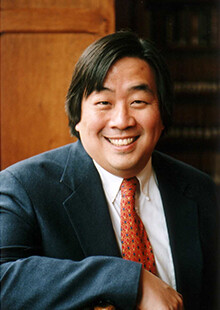
“Putin is acting from weakness, not strength. His short game is force, but our long game is law. Ukrainians love their freedom and will not surrender it easily. Russia could not subjugate Afghanistan despite massive extended effort. Russia, Putin, and the oligarchs who support him need access to the markets, cyberspace, money, oil, and other resources that are conditioned on lawful behavior.
“The alliance must stay united, keep calling out Putin’s pretexts and deceptions, discourage the Chinese from a closer partnership with Putin, punish him and his cronies with targeted sanctions, support the Ukrainians, be generous to refugees, and keep stressing that the Russian people themselves are not our enemies. When Russia’s people and allies start questioning what they have really gotten from Putin’s fantasy of reassembling the Soviet Union, his days will be numbered. Throughout, we should not waver in our stalwart insistence on human rights, democracy, and the rule of law.”
Samuel Moyn on What History Tells Us About the Long-term Implications of War
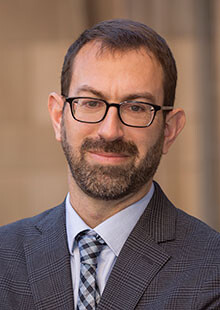
“Even if it is a contained war, it will ratify the damage to the international legal order previously done by Russia, especially in its invasion of Crimea in March 2014. And it will remind us that earlier illegal acts by other powers are gifts-that-keep-on-giving pretexts for breaking the law. This includes United States interventions (such as Iraq and Kosovo) that Vladimir Putin cynically mentioned in justification of this invasion in his speech the other night. If Putin’s war spins out of control, anything can happen — but let’s hope that Putin walks away with Ukraine’s eastern provinces and no further escalation occurs.
“I do not think it is a time to incur too many escalatory risks. History teaches that aggressors are hard to deal with, and sometimes get away with their illegal deeds. But it is long past time for recognition that the international legal order has degraded profoundly since 1945, and it is a heavy legacy to our children that so few rules forbidding war seem to apply to countries powerful enough to shirk them. We need to respond in the long term by strengthening what the United Nations was supposed to be about, including by Security Council reform. In the meantime, liberal countries should control sanctions regimes so that they are smart and targeted to avoid civilian harm — unlike in the past.”
